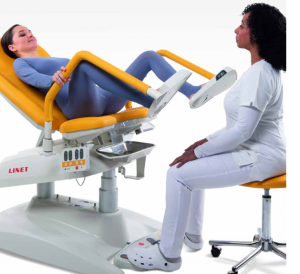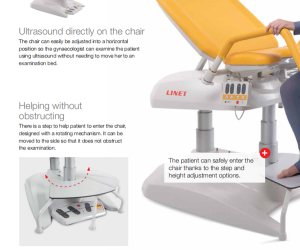
For years, persons with short stature in Rwanda faced significant challenges in accessing inclusive reproductive health services due to inaccessible medical equipment and limited awareness among healthcare providers. Recognizing this gap, the Rwanda Union of Little People (RULP) took a bold step in advocating for inclusive reproductive healthcare.
Through the project “Promoting Access to Inclusive Reproductive Health Services for Persons with Short Stature in Rwanda,” RULP actively engaged with the Ministry of Health, urging policymakers to address the barriers that women with short stature face in accessing gynecological care. The advocacy efforts focused on the lack of adjustable gynecological tables in health facilities, which made it difficult for women with short stature to receive dignified and quality reproductive health services.
After persistent engagement, policy dialogues, and awareness campaigns, the Rwanda Ministry of Health responded by importing an inclusive gynecological table, marking a historic moment in ensuring equal access to reproductive healthcare. This specialized table is designed to accommodate persons with short stature, making gynecological examinations and maternal care more comfortable and accessible.


A kind of gynecologic table imported
Honorine TUYISHIMIRE, RULP Executive director said that it is a groundbreaking achievement for persons with short stature in Rwanda. “For too long, women with short stature have faced barriers in accessing reproductive healthcare due to the lack of suitable medical equipment. Our advocacy aimed to bring this issue to light, and today, we celebrate a major milestone the importation of Rwanda’s first inclusive gynecological table by the Ministry of Health. This is a clear indication that our voices are being heard, and change is happening.”
She added that the journey to achieving this success was not easy as RULP engaged in several discussions, policy dialogues, and consultations with the Ministry of Health, CSOs, INGOs and other related institutions, emphasizing the urgent need for inclusive reproductive health services.
“This is not just about a piece of medical equipment,” the Executive Director explains. “It’s about dignity, equality, and ensuring that no woman is left behind in accessing essential health services. The inclusive gynecological table is a symbol of progress, but it’s also a call to action for more inclusive healthcare policies and infrastructure.”
Honorine said that though the tables are not full accessible but this is a fantastic example of how advocacy and collaboration can lead to tangible improvements in healthcare accessibility, so she appreciated to ministry of Health for this great job.
“We are grateful to the Ministry of Health for responding to our advocacy and taking this important step. However, this is just the beginning. We wish the government and healthcare providers to further invest in inclusive healthcare system that accommodate all persons with disabilities. Together, we can build a truly inclusive Rwanda where everyone has equal access to quality healthcare”.
Thadee Gasasira, the Director of Electro-mechanical Unit at Rwanda Biomedical Center confirmed that the information is accurate that that Rwanda has a will to promote inclusion in health service delivery, thus, they imported adjustable gynecologic tabled that can be used by people with disabilities accessibly.
“Rwanda is committed to promoting inclusivity in health service delivery. As part of this initiative, the RBC has imported adjustable gynecological tables designed to be accessible for people with disabilities. This move aligns with Rwanda’s broader efforts to ensure equitable healthcare services for all citizens.
To now, the gynecological tables imported by Rwanda Ministry of Health can be found in four districts hospitals which are Kabgayi, Nyabikenke, Munini and Nyamata hospitals in Bugesera.
